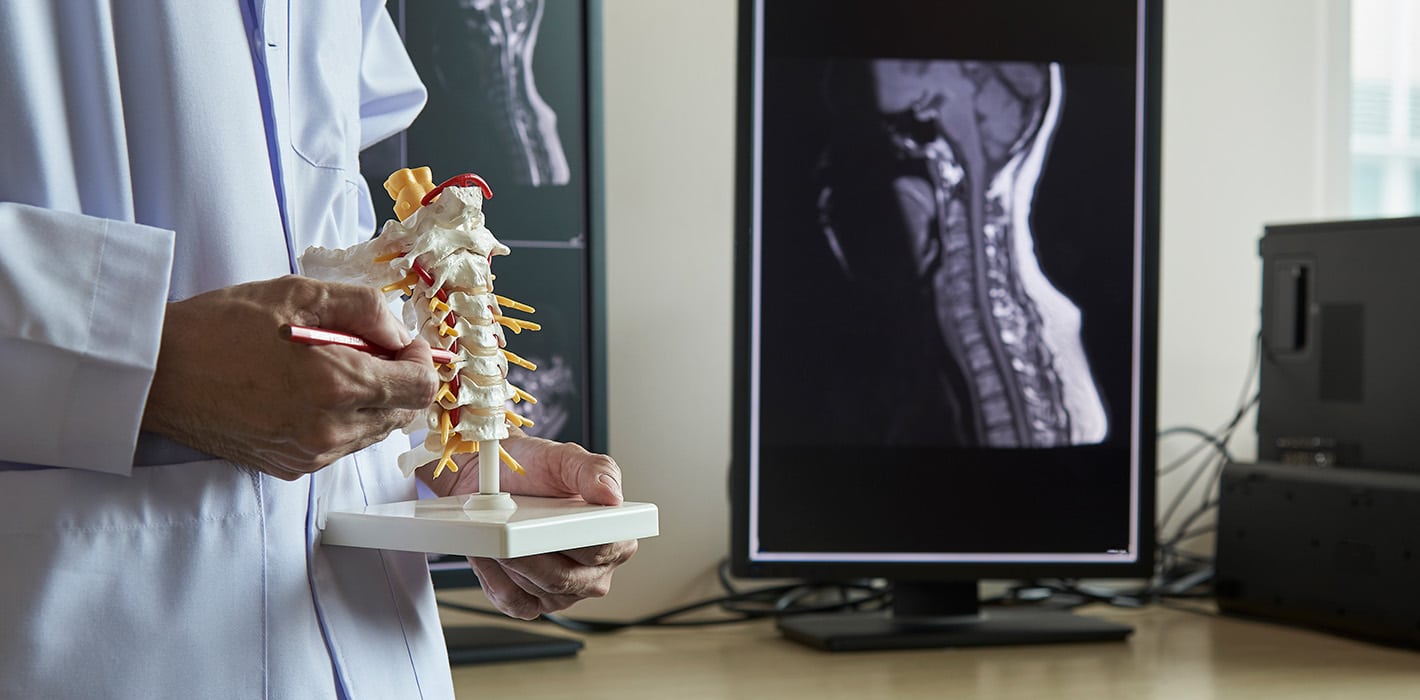 August 1, 2019
August 1, 2019When we’re young, our body replaces bone material at a fast rate. This constant renewal keeps our bones healthy and strong. As we age, this replacement rate slows down to the point where we can actually start to lose bone mass.
If this condition gets too severe, we are left with thin, fragile bones that struggle to support and protect our bodies. This condition is known as osteoporosis.
Symptoms of Osteoporosis
As said above, osteoporosis is the result of weakening and thinning bones. In its early stages, there are usually no symptoms that can detect this condition. However, at some point, this loss of bone matter will lead to several notable conditions, including:
- A stooped posture – Without a doubt, this is one of the most obvious signs. If you are unable to stand up straight due to the bones in your back hurting or even being bent or collapsed, this is a sure sign.
- Back pain – Before the stooped posture, the strain put on your weakening bones will cause you to experience back pain; sometimes, it can be pretty severe.
- Loss of height – We typically associate “shrinking” as nothing more than a symptom of age, but it is usually caused by weakening bones that are no longer able to support the entire body. The bones collapse and bend, causing a person to become shorter over time.
- Bone fractures – Weak bones will naturally break much easier than strong, healthy ones. As bones weaken, the chance of a fracture increases significantly.
When to Seek Treatment
Because osteoporosis begins with zero symptoms, by the time you notice a problem it might be already too late to prevent bone loss. This is why it’s a good idea to seek preventative care — especially if you are at a higher risk. Higher risk factors include advanced age, being female, smoking, poor diet, or early menopause, although there are many other factors as well.
Should you start to suspect you have osteoporosis, this doesn’t mean it’s too late to start treatment. Seeking medical help as soon as possible can greatly improve your overall prognosis, allowing you to keep more bone mass for longer.
The best advice is to arrange an appointment as soon as possible, as a doctor will be able to come up with a plan that will work best for you and your lifestyle. If you would like to talk to someone more about your risk for osteoporosis, and what you can do to treat current problems or prevent future ones, please contact us at Mid Atlantic Orthopedic Associates today!
